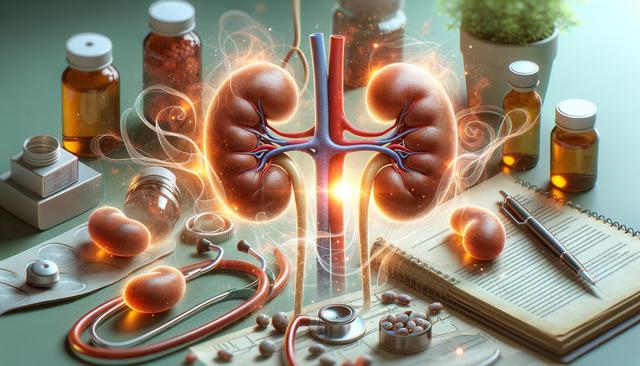Recognizing the Early Signs of Kidney Disease
Kidney disease often develops quietly, with symptoms appearing gradually over time. Because the kidneys perform essential functions like filtering waste and regulating blood pressure, even minor issues can have widespread effects on the body. Recognizing the early signs is important for seeking medical advice and beginning treatment early. Common early symptoms include fatigue, swelling in the ankles or feet, changes in urination frequency, and difficulty concentrating. These signs are often mistaken for other conditions, which can delay diagnosis.
As kidney function declines, toxins build up in the body, leading to symptoms such as persistent itching, muscle cramps, and nausea. It’s also common to notice changes in urine, such as foamy urine or blood appearing in the toilet. If you experience any of these signs, it’s essential to consult a healthcare provider promptly. Early detection plays a key role in slowing the progression of the disease and exploring options on how to improve kidney function to avoid dialysis.
Key Risk Factors and Prevention Strategies
Several risk factors can increase the likelihood of developing kidney disease. These include diabetes, high blood pressure, a family history of kidney conditions, and prolonged use of certain medications. Individuals with these risk factors should be especially vigilant about early symptoms and should regularly monitor kidney function through routine blood and urine tests.
There are several kidney disease prevention tips that can help reduce the risk or delay the onset of complications:
- Maintain a healthy blood pressure and blood sugar level
- Stay hydrated but avoid excessive fluid intake
- Exercise regularly and manage body weight
- Quit smoking and limit alcohol consumption
- Avoid over-the-counter pain relievers unless prescribed
Nutrition also plays a crucial role in prevention. Understanding the diet for diabetes, high blood pressure, and kidney disease can support both kidney health and overall wellness. A diet low in sodium, phosphorus, and protein helps relieve stress on the kidneys and improves long-term outcomes.
Nutrition: What to Eat and What to Avoid
Dietary choices are central to managing kidney disease, especially in the early stages. Patients should work with a dietitian to develop a meal plan that balances nutritional needs without overburdening kidney function. Knowing the foods to avoid with kidney disease can significantly reduce further damage to the kidneys.
Some common foods to avoid include:
- Processed meats like bacon and sausage
- High-sodium snacks and canned soups
- Foods high in phosphorus, such as dairy products and nuts
- Dark-colored sodas and chocolate
- Bananas, oranges, and other potassium-rich foods (in excess)
Instead, incorporating kidney-friendly options like apples, berries, cauliflower, and white rice can help maintain a balanced diet. Those with diabetes or hypertension should also adhere to a diet for diabetes, high blood pressure, and kidney disease to manage all conditions simultaneously. This often includes carbohydrate monitoring, reducing saturated fats, and prioritizing whole grains and fresh vegetables.
Modern Treatment Options and Outlook
When detected early, kidney disease can often be managed effectively with lifestyle changes, medication, and regular monitoring. However, as the disease progresses, more intensive intervention may be needed. Options for treatment for chronic kidney disease can include medications to control blood pressure, blood sugar, and cholesterol. In some cases, anemia treatments and phosphate binders are used to address specific complications.
Medical advancements continue to offer hope. New kidney disease treatments for 2025 are being developed, focusing on slowing disease progression and improving quality of life. These include improved medications targeting inflammation and fibrosis, as well as potential gene therapies and regenerative medicine approaches. Participation in clinical trials may be an option for some patients, providing access to cutting-edge therapies under medical supervision.
Alongside medical treatment, patients are encouraged to explore lifestyle approaches on how to improve kidney function to avoid dialysis, such as reducing protein intake, staying active, and maintaining a healthy weight. While not a cure, these steps can enhance kidney performance and delay the need for dialysis or transplantation.
Living with Chronic Kidney Disease
Being diagnosed with kidney disease can be overwhelming, but with the right approach, many individuals continue to live full and active lives. Education is a powerful tool in managing the condition—understanding the symptoms, knowing which foods to avoid with kidney disease, and staying up to date on new kidney disease treatments for 2025 can empower patients to take control of their health.
Support systems, including healthcare providers, dietitians, and peer communities, play an essential role in patient well-being. Regular check-ups and communication with medical professionals ensure that treatment plans are working and adjusted as needed. For those managing multiple conditions, such as diabetes and hypertension, following a tailored diet for diabetes, high blood pressure, and kidney disease is crucial for preventing further complications.
Developing healthy habits like exercising, managing stress, and following kidney disease prevention tips can support long-term kidney health. While chronic kidney disease is a serious condition, advancements in treatment and proactive lifestyle choices offer a path toward stability and improved quality of life.
Conclusion: Taking Proactive Steps Toward Kidney Health
Early awareness and action are key when it comes to kidney disease. Understanding the symptoms can lead to timely diagnosis, while adopting a healthy lifestyle and avoiding harmful dietary choices can slow disease progression. Whether you’re looking for treatment for chronic kidney disease or seeking guidance on how to improve kidney function to avoid dialysis, staying informed and working closely with healthcare professionals is essential. With emerging new kidney disease treatments for 2025 on the horizon and a growing body of knowledge about foods to avoid with kidney disease and preventative strategies, individuals have more tools than ever to protect their kidney health. Taking these steps today can lead to a healthier tomorrow.



Leave a Reply